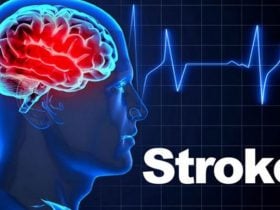Is alcohol harmful to the brain? Yes. Too much intake of alcohol can cause severe damage to not just the brain but other organs in the body. Alcohol starts to affect a person’s brain once it enters the bloodstream. In a healthy person, the liver helps to filter alcohol, helping the body to get rid of the drug. However, when a person drinks too excess, the liver cannot filter the alcohol fast enough, and this triggers immediate changes in the brain.
Over time, excessive alcohol consumption will affect two major organs, the liver and the brain, which can result in serious health issues.
Excessive alcohol consumption can have long-lasting effects on neurotransmitters in the brain, decreasing their effectiveness or even mimicking them. Alcohol also causes brain cells to malfunction and contracts brain tissue. Some people with a history of excessive alcohol use develop nutritional deficiencies that further damage brain function.
The symptoms of alcohol-related brain damage vary from person to person. It depends on a person’s overall health, how much they drink, and how well their liver functions, among other factors.
What Parts of the Brain Does Alcohol Affect

The brain is basically in charge of our body. It controls our thoughts, emotions, memory, motor functions, temperature, senses, organs, and autonomic activities like breathing. Alcohol can affect all the functions of the brain and cause several health issues. Here are parts of the brain that can be affected by alcohol.
- The Cerebral Cortex: This is the thinking center of our consciousness. It is in charge of processing information, formulating judgement and making decisions. Alcohol depresses this function, slowing the input of sensory information, clouding the thought process, and reducing inhibitions. The cerebral cortex [1] can permanently damage if you continue taking alcohol for a long period.
- The Cerebellum: This part of the brain is in charge of movement, coordination, equilibrium, and balance. Alcohol impairs this brain region, affecting our balance, causing us to be unsteady, stagger, and possibly fall. It may also cause our hands to shake.
- The Hypothalamus: Hypothalamus works together with the Pituitary [2] to link the nervous system to the endocrine system. This region of the brain both stimulates and inhibits key hormonal processes in order to maintain the body’s internal balance. Alcohol depresses and disrupts the balance of these systems, as well as impacting sexual desire and performance. Sexual desire may intensify, but the ability to perform may be impaired.
- The Medulla: The medulla controls automatic functions of the body, such as breathing, consciousness, and body temperature. Alcohol depresses these vital functions, causing sleepiness, slowing breathing, lowering body temperature, and possibly coma. Depression [3] of automatic functions can be life-threatening.
- The Hippocampus: This part of the brain controls the memory. When influenced by alcohol, it can cause blackout, memory loss, and affect one’s ability to learn. Long-term use of alcohol can permanently affect the memory and can contribute to dementia. [4]
- The Central Nervous System: This comprises the brain, spinal cord, and nerves. Alcohol slows down the transmission of messages to and from these areas, affecting movement, thinking, and speech.













